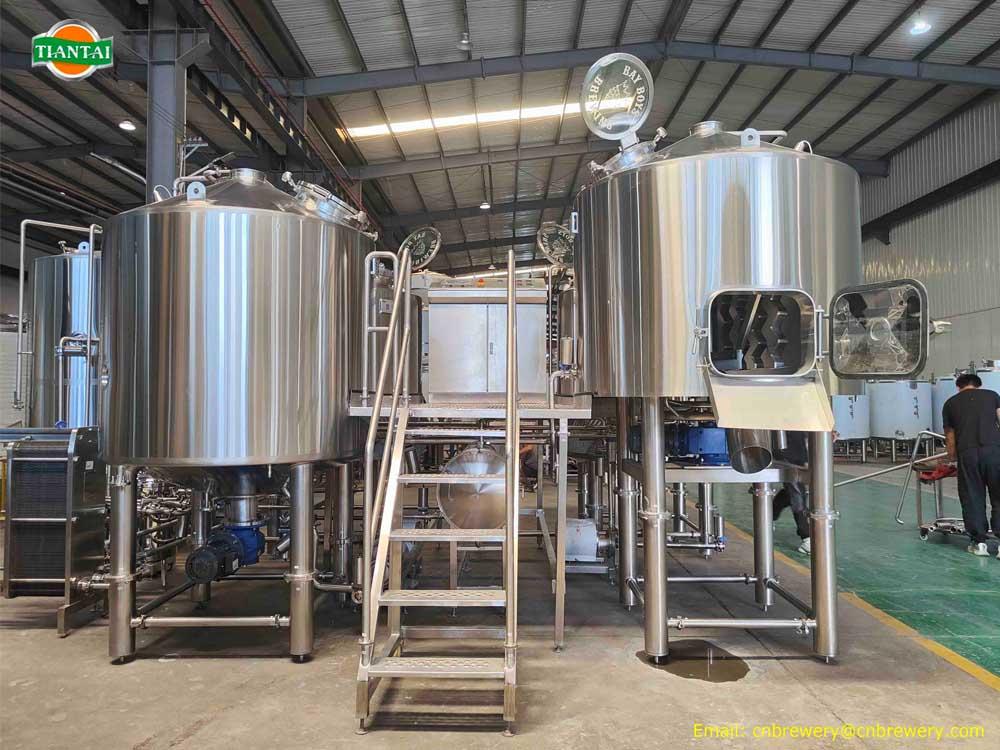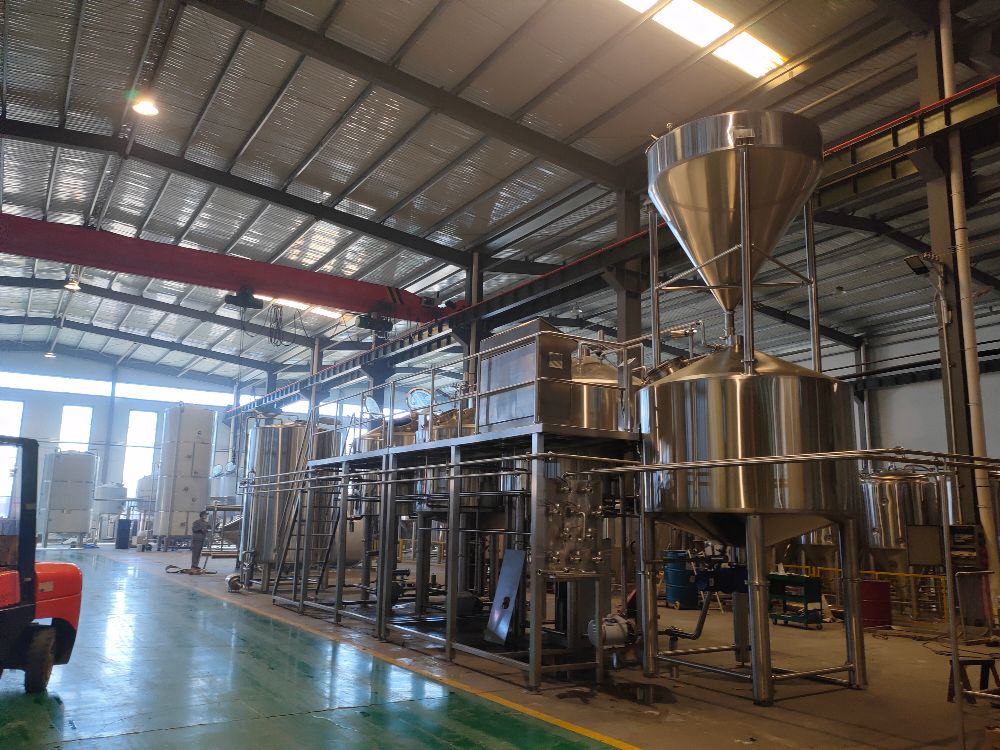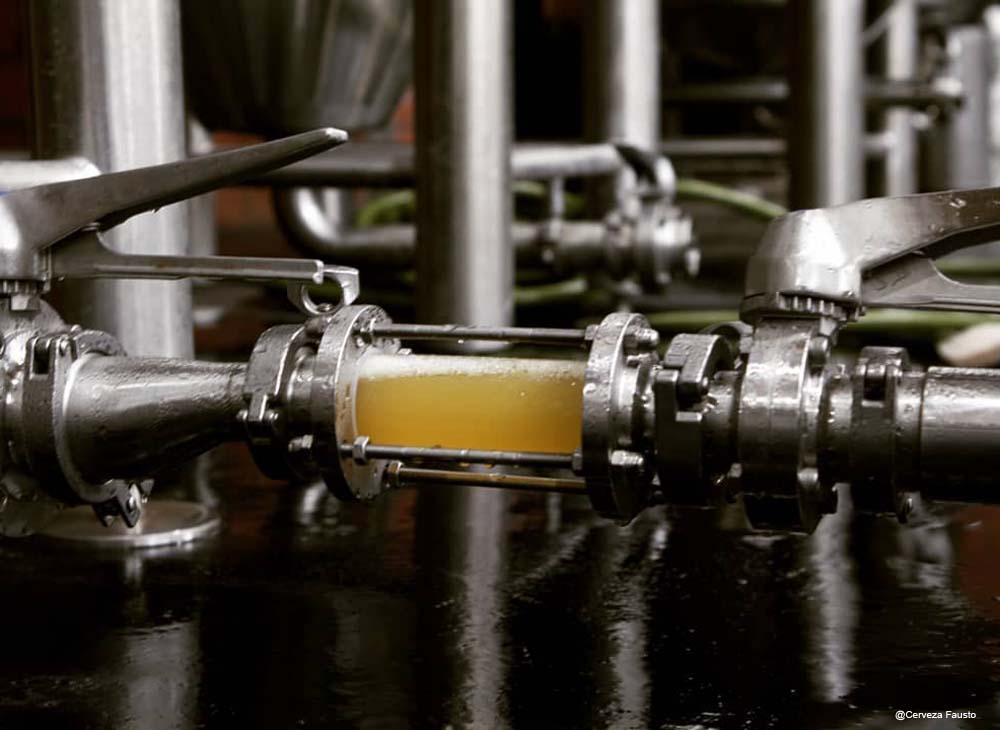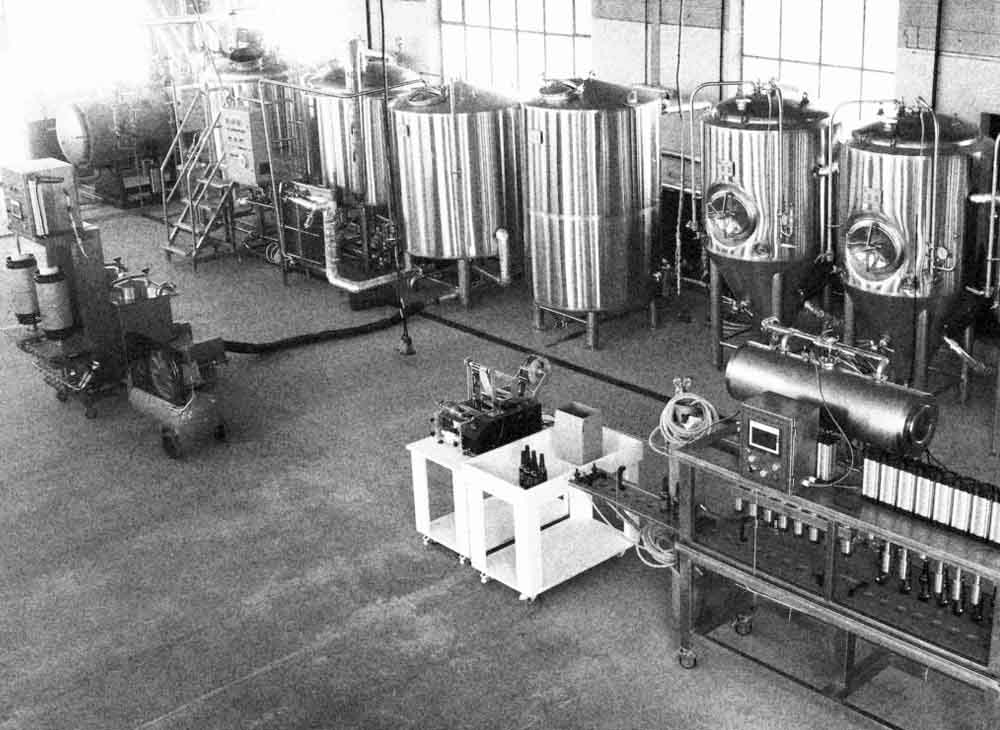What is the difference between steeping and mashing
- Feb 26, 2022
- 91
- tiantai
Mashing and also soaking are really comparable procedures initially glimpse. Both include saturating crushed grains in hot water. If you look extra very closely, there are some sharp contrasts in between the 2 approaches.
.jpg)
Mashing is a strategy in which malted grains are soaked and also amylase enzymes from the grains transform their starch to fermentable sugars. Some mashing approaches combine malts that are extremely high in enzymes with starchy grains doing not have enzymes. Various other mashing methods only utilize malted grains. Mashing methods using adjuncts, such as rice or corn, work since enzymes from malt have the ability to move easily around in the mash once the malt has actually been crushed as well as wetted. The amylase enzymes can not set apart starch from malt or rice, and also they deal with their happy means breaking down (hydrolyzing) starch into fermentable sugars. The secret to mashing is that the starch is broken down into fermentable sugars as well as special interest is provided to regulating the mash setting-- I'll get to that later.
Grains that are mashed include any kind of pale malt, lightly toasted or kilned special malts (such as Munich malt) and raw cereal grains.
Steeping, on the various other hand, is a method made use of to extract colors as well as flavors from specific sorts of specialized grains. The grains are saturated in hot water, the idea is not to have enzymes acting upon starch. Rather, steeping simply essences substances consisted of in the malt. The types of specialized malts ideal for steeping already have the starch converted to sugars during the malting process. These include the family members of crystal or sugar malts-- grain or malt that is baked to such a high degree that the starch molecules have been changed by heat to the point where malt enzymes don't do much to them. Roasted grains as well as malts include chocolate as well as black malt, roasted wheat, roasted wheat malt, roasted rye as well as baked barley. Unique malts such as Munich malts, light wheat malt, light rye malt and flaked cereal grains like barley, oats, corn and also rice are not fit for soaking due to the fact that these active ingredients all have a great deal of starch.
The vital differences in the actual procedures of soaking and also mashing lie primarily in the density, temperature level, duration and technique used to separate the grain from the fluid. Mash density, or the proportion of malt to water, is necessary in mashing because enzymes are affected by the concentration of starch. If it's too high, the amylase enzymes do not have the water needed to hydrolyze starch (hydrolysis is a term utilized to refer to damaging chemical bonds by the enhancement of water). If the mash is too slim, the enzymes are much less heat-stable and also are extra susceptible to denaturation (enzyme damage). Many mashes use between one and 2 quarts of water per pound of malt (~ 2 to 4 liters/kg). When it involves soaking, thin is great and also it prevails to make use of ratios as high as six quarts per pound (~ 12 liters/kg). The thin steep not only improves the efficiency of steeping, it is likewise hassle-free since the steep water is usually utilized to liquify malt removes after the steeped grains are eliminated.
Brewers have called the numerous mash temperature relaxes for enzymes or their substrates due to the fact that of this crucial connection. Couple of makers include all of these temperature relaxes in their mash accounts, yet mash temperature is constantly associated with enzymatic task. The majority of concur that grain-steeping temperature levels need to be kept listed below concerning 170 ° F (~ 77 ° C) to prevent the extraction of astringent tannins from the malt husk.
Enzymatic responses take time as well as most mashes last at the very least 60 mins. Soaking does not need such a very long time because the only thing happening is the dissolution of the malt solids. Fifteen mins is sufficient time for soaking. The last step is separating the grains from the fluid. The majority of steepers use a nylon bag that is easily eliminated from the steep like a tea bag. Depending upon the amount of grain steeped as well as the quantity of water utilized, the bag is rinsed with hot water. Mashing needs the more engaged method of separating the wort from the grains. This process is called lautering. Wort is divided from the solids in some kind of straining tool-- for example, a lauter tun-- and is extensively rinsed with hot sparge water to extract as much wort as feasible. This action is required in mashing as a result of the mash density. If the sparging were not utilized the specific gravity of the wort would certainly be around 1.080, as compared to sparged gravities ranging from 1.040 and higher.
In recap, these are the key distinction between mashing as well as steeping. To the remove brewer who utilizes steeping for specialized malts, mashing most likely sounds very entailed compared to soaking. The technique of mashing is really not much extra engaged than steeping. It's just that there is a lot extra taking place, and much more variations on brewing to check out, when mashing is become part of the homebrewing formula!
Mashing approaches using accessories, such as rice or corn, job since enzymes from malt are able to move easily about in the mash once the malt has actually been squashed and also wetted. These include the family of crystal or sugar malts-- grain or malt that is baked to such a high degree that the starch molecules have been customized by warm to the point where malt enzymes do not do much to them. Baked grains as well as malts include delicious chocolate as well as black malt, baked wheat, roasted wheat malt, baked rye as well as baked barley. Special malts such as Munich malts, pale wheat malt, pale rye malt and flaked grain grains like barley, oats, corn and rice are not fit for soaking due to the fact that these components all have a lot of starch.
To the extract brewer that utilizes soaking for specialized malts, mashing most likely seems very involved contrasted to steeping.
Laura Hou
Sales manager
Tiantai Beer Equipment
[email protected]
.jpg)
Mashing is a strategy in which malted grains are soaked and also amylase enzymes from the grains transform their starch to fermentable sugars. Some mashing approaches combine malts that are extremely high in enzymes with starchy grains doing not have enzymes. Various other mashing methods only utilize malted grains. Mashing methods using adjuncts, such as rice or corn, work since enzymes from malt have the ability to move easily around in the mash once the malt has actually been crushed as well as wetted. The amylase enzymes can not set apart starch from malt or rice, and also they deal with their happy means breaking down (hydrolyzing) starch into fermentable sugars. The secret to mashing is that the starch is broken down into fermentable sugars as well as special interest is provided to regulating the mash setting-- I'll get to that later.
Grains that are mashed include any kind of pale malt, lightly toasted or kilned special malts (such as Munich malt) and raw cereal grains.
Steeping, on the various other hand, is a method made use of to extract colors as well as flavors from specific sorts of specialized grains. The grains are saturated in hot water, the idea is not to have enzymes acting upon starch. Rather, steeping simply essences substances consisted of in the malt. The types of specialized malts ideal for steeping already have the starch converted to sugars during the malting process. These include the family members of crystal or sugar malts-- grain or malt that is baked to such a high degree that the starch molecules have been changed by heat to the point where malt enzymes don't do much to them. Roasted grains as well as malts include chocolate as well as black malt, roasted wheat, roasted wheat malt, roasted rye as well as baked barley. Unique malts such as Munich malts, light wheat malt, light rye malt and flaked cereal grains like barley, oats, corn and also rice are not fit for soaking due to the fact that these active ingredients all have a great deal of starch.
The vital differences in the actual procedures of soaking and also mashing lie primarily in the density, temperature level, duration and technique used to separate the grain from the fluid. Mash density, or the proportion of malt to water, is necessary in mashing because enzymes are affected by the concentration of starch. If it's too high, the amylase enzymes do not have the water needed to hydrolyze starch (hydrolysis is a term utilized to refer to damaging chemical bonds by the enhancement of water). If the mash is too slim, the enzymes are much less heat-stable and also are extra susceptible to denaturation (enzyme damage). Many mashes use between one and 2 quarts of water per pound of malt (~ 2 to 4 liters/kg). When it involves soaking, thin is great and also it prevails to make use of ratios as high as six quarts per pound (~ 12 liters/kg). The thin steep not only improves the efficiency of steeping, it is likewise hassle-free since the steep water is usually utilized to liquify malt removes after the steeped grains are eliminated.
Brewers have called the numerous mash temperature relaxes for enzymes or their substrates due to the fact that of this crucial connection. Couple of makers include all of these temperature relaxes in their mash accounts, yet mash temperature is constantly associated with enzymatic task. The majority of concur that grain-steeping temperature levels need to be kept listed below concerning 170 ° F (~ 77 ° C) to prevent the extraction of astringent tannins from the malt husk.
Enzymatic responses take time as well as most mashes last at the very least 60 mins. Soaking does not need such a very long time because the only thing happening is the dissolution of the malt solids. Fifteen mins is sufficient time for soaking. The last step is separating the grains from the fluid. The majority of steepers use a nylon bag that is easily eliminated from the steep like a tea bag. Depending upon the amount of grain steeped as well as the quantity of water utilized, the bag is rinsed with hot water. Mashing needs the more engaged method of separating the wort from the grains. This process is called lautering. Wort is divided from the solids in some kind of straining tool-- for example, a lauter tun-- and is extensively rinsed with hot sparge water to extract as much wort as feasible. This action is required in mashing as a result of the mash density. If the sparging were not utilized the specific gravity of the wort would certainly be around 1.080, as compared to sparged gravities ranging from 1.040 and higher.
In recap, these are the key distinction between mashing as well as steeping. To the remove brewer who utilizes steeping for specialized malts, mashing most likely sounds very entailed compared to soaking. The technique of mashing is really not much extra engaged than steeping. It's just that there is a lot extra taking place, and much more variations on brewing to check out, when mashing is become part of the homebrewing formula!
Mashing approaches using accessories, such as rice or corn, job since enzymes from malt are able to move easily about in the mash once the malt has actually been squashed and also wetted. These include the family of crystal or sugar malts-- grain or malt that is baked to such a high degree that the starch molecules have been customized by warm to the point where malt enzymes do not do much to them. Baked grains as well as malts include delicious chocolate as well as black malt, baked wheat, roasted wheat malt, baked rye as well as baked barley. Special malts such as Munich malts, pale wheat malt, pale rye malt and flaked grain grains like barley, oats, corn and rice are not fit for soaking due to the fact that these components all have a lot of starch.
To the extract brewer that utilizes soaking for specialized malts, mashing most likely seems very involved contrasted to steeping.
Laura Hou
Sales manager
Tiantai Beer Equipment
[email protected]




